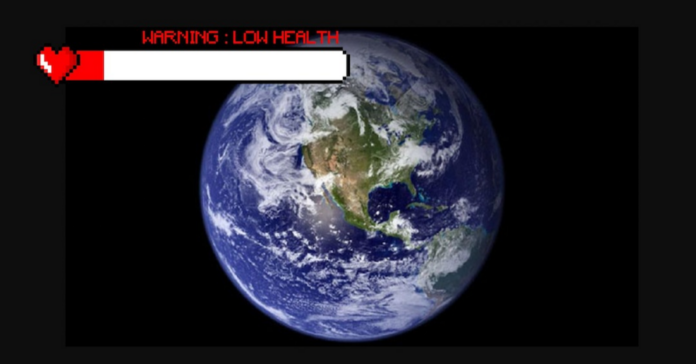De-Gamify the Earth
Basically the problem is that our whole planet has been gamified. All the Earth’s life, resources and geography have been folded into this sick game where people commodify them into points called money, for no other reason than to score as many points as possible.
Listen to a reading of this article (reading by Tim Foley):
Basically the problem is that our whole planet has been gamified. All the Earth’s life, resources and geography have been folded into this sick game where people commodify them into points called money, for no other reason than to score as many points as possible.
A tree is worth a set amount of points in the game. A fish, a liter of water, a barrel of oil, or an acre of land are each worth a set amount of points. Human labor is worth a set amount of points, and the products it produces are worth a greater amount of points. Nothing’s what it actually is in the game; first and foremost it’s the number of points it can be used to score. Someone who’s quite adept at the game never sees things in and of themselves, they see only their point-scoring value.
Everything’s been reduced to the value of the points it can be used to score, and all of human behavior is driven by this point-scoring game. Food, shelter and resources are not allocated in whatever way would best serve human interests, they’re allocated based on the play dynamics of the game. The ecosystem is not treated in ways that benefit its thriving, it’s treated in whatever way scores the most points in the game. People are not treated with care and respect, they’re treated in accordance with their point-scoring ability in the game.
There are a few key differences between this game and other games. Firstly, other games won’t leave you homeless and hungry if you lose. Secondly, in most other games the players start out on an even playing field, whereas in this game everyone starts out with a wildly unequal number of points and a wildly unequal ability to score more of them. Thirdly, other games tend to have an end point where a winner is declared and the game is over, whereas in this game players just keep racking up as many points as possible for as long as their mortality allows. Fourthly, other games aren’t destroying the world.
In the days before the game, a human who killed an animal, gathered some berries and mushrooms, cut some firewood and obtained some water was done obtaining things for the day, because he had as much as his one human body could use. Now that the world has been gamified and everything has been turned into points, there’s no level of obtaining that amounts to “done for the day”. According to the rules of the game, the more points the better, so if one human can find a way to kill a million animals, harvest ten million plants, cut down an entire forest and secure ownership rights to an entire freshwater spring and convert them all into points in a single day, he’s got every incentive to do so and nothing incentivizing him not to.
This is unsustainable. We can’t keep relating to our planet in terms of point-scoring in a crazy made-up game.
In order to have a healthy planet, we must first de-gamify the earth. We must begin approaching our world in accordance with reality as it actually is, not in accordance with this weird game we made up in our minds. We must build new systems in which we’re all collaborating toward the good of everyone and the good of our biosphere, not competing against each other to score more points. Not until we are relating to terrestrial life on terrestrial life’s terms will we have the ability to live in health and harmony.
At a certain level of maturity you’ve got to put down the video game controller, go outside, and start living your life. It’s as true of our collective species as it is of the individual.
…
My work is entirely reader-supported, so if you enjoyed this piece here are some options where you can toss some money into my tip jar if you want to. All my work is free to bootleg and use in any way, shape or form; republish it, translate it, use it on merchandise; whatever you want. The best way to make sure you see the stuff I publish is to subscribe to the mailing list on Substack, which will get you an email notification for everything I publish. All works co-authored with my husband Tim Foley.
Bitcoin donations: 1Ac7PCQXoQoLA9Sh8fhAgiU3PHA2EX5Zm2

